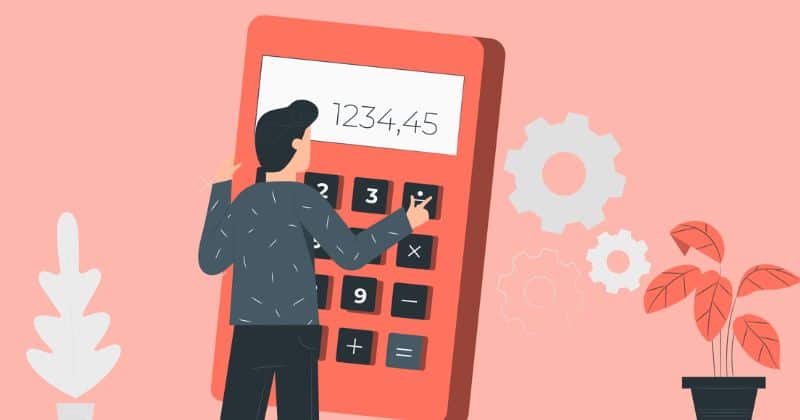Why Are You Not Eligible For Debit Card EMI?

In today’s world of digital transactions, the ability to buy products on EMI (Equated Monthly Installments) using a debit card has become a game-changer for many consumers. It provides the flexibility to purchase expensive items without immediately draining one's savings. However, not everyone is eligible for this facility, and many users often wonder why their debit card does not support EMI options. If you’ve faced this issue, it’s important to understand the various eligibility criteria and reasons that might be preventing you from availing of debit card EMI. In this article, we’ll explore the factors affecting debit card EMI eligibility and how you can potentially improve your chances of getting approved. Debit Card EMI allows customers to buy products on installment plans even if they do not own a credit card. Unlike traditional credit-based EMI, where a bank or financial institution extends credit to the user, a debit card EMI is linked to the customer’s savings or current account. The amount is deducted in fixed monthly installments directly from their bank balance. To provide this facility, banks assess several factors, including past transaction history, account activity, and financial discipline. Not all customers are pre-approved for this service, which is why some find themselves ineligible. If your debit card does not qualify for EMI transactions, the reasons could vary. Below are the key factors that could be affecting your eligibility: The most basic reason you might not be eligible for debit card EMI is that your bank simply does not provide this facility. Not all banks extend this feature to their customers, and even among those that do, the service may be restricted to specific accounts or customer segments. Most banks offer debit card EMI only to customers who have been pre-approved based on their banking history. If you have not received any communication from your bank about this feature, it likely means you have not been shortlisted for the facility. Banks typically offer debit card EMI to customers who have maintained an account with them for a significant period. If your account is relatively new or has limited transaction history, you may not yet qualify for the EMI option. One major criterion banks consider while offering debit card EMI is your account’s average monthly balance. If your balance remains low or fluctuates frequently, the bank may not see you as a suitable candidate for EMI facilities. Banks evaluate your spending habits before granting debit card EMI eligibility. If you rarely use your debit card for high-value transactions, or if your overall spending pattern is inconsistent, the bank may not extend this service to you. Many banks set a minimum transaction limit that a customer must meet before they are considered for debit card EMI. If you haven't made enough eligible transactions or haven’t used your debit card for large purchases, you may not qualify. Some banks prioritize customers with salary accounts or those who receive regular deposits in their accounts. If you don’t have a salary account or if your income deposits are irregular, you may not be eligible for debit card EMI. Your relationship with the bank matters. Customers who frequently overdraw their accounts, fail to maintain the required balance, or have had past issues with payments may not be considered for debit card EMI. Not all debit cards are eligible for EMI transactions. Certain cards, particularly basic or entry-level ones, may not be included in the EMI program. Additionally, your issuing bank’s internal policies may restrict some users from accessing this facility. Some banks offer debit card EMI only to customers who have a fixed deposit or an overdraft facility linked to their account. This provides the bank with additional security in case of payment defaults. If you don’t have such financial products linked to your account, you may not qualify. If you are currently ineligible for debit card EMI but wish to improve your chances, consider the following steps: Try to keep a consistent and sufficient balance in your savings or current account. Banks look favorably at customers who maintain a stable financial status. Make regular transactions using your debit card, especially for high-value purchases. Banks analyze spending patterns to determine eligibility for EMI facilities. If possible, open a salary account with your bank and ensure that your salary gets credited regularly. Banks often provide better financial products, including EMI facilities, to salary account holders. Having a good banking relationship can be beneficial. Avoid overdrafts, maintain a clean transaction history, and engage with your bank for other financial services to enhance your credibility. Keep an eye on notifications from your bank regarding pre-approved EMI offers. Some banks may update eligibility criteria periodically, so checking regularly might help. If your bank allows it, linking a fixed deposit or opting for an overdraft facility can improve your eligibility for debit card EMI. If you are unsure about your eligibility, it is always best to contact your bank’s customer support. They can provide insights into why you are not eligible and guide you on how to qualify in the future.Understanding Debit Card EMI
Reasons You Might Not Be Eligible for Debit Card EMI
1. Your Bank Doesn’t Offer Debit Card EMI
2. You Don’t Have a Pre-Approved Offer
3. Insufficient Banking History
4. Low Average Monthly Balance
5. Irregular Transactions or Low Spending Pattern
6. Not Meeting the Minimum Transaction Requirement
7. No Salary Account or Stable Income Source
8. Poor Banking Relationship
9. Debit Card Type and Issuing Bank Policies
10. No Linked Fixed Deposit or Overdraft Facility
How to Improve Your Chances of Getting Debit Card EMI
1. Maintain a Healthy Account Balance
2. Use Your Debit Card Regularly
3. Opt for a Salary Account
4. Build a Strong Banking Relationship
5. Check for Pre-Approved Offers
6. Link a Fixed Deposit to Your Account
7. Contact Your Bank for More Information

